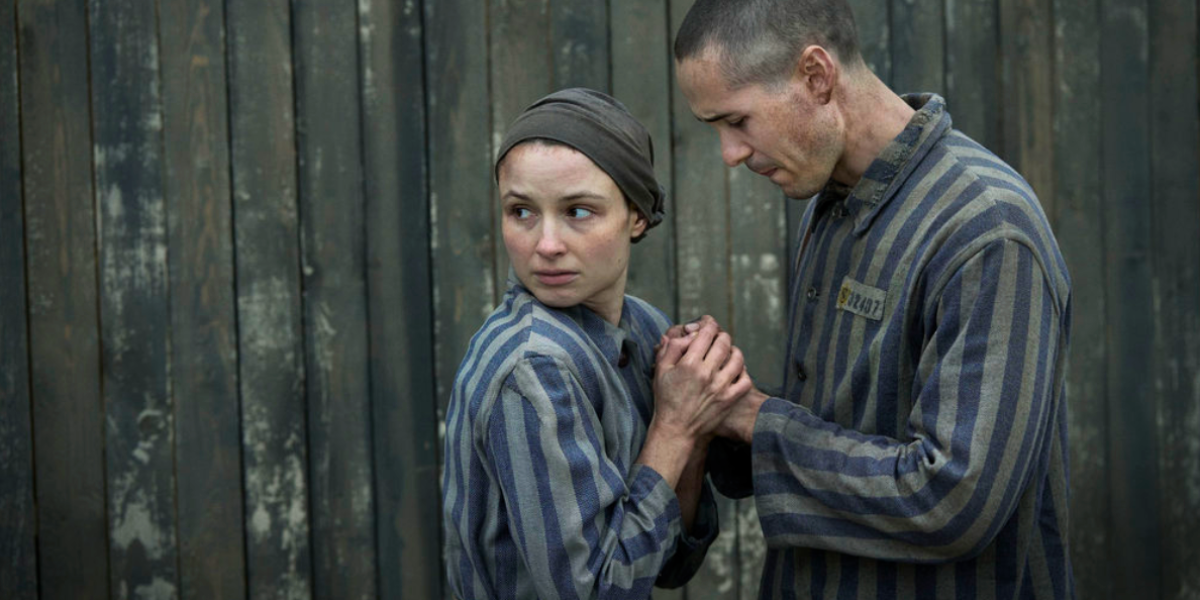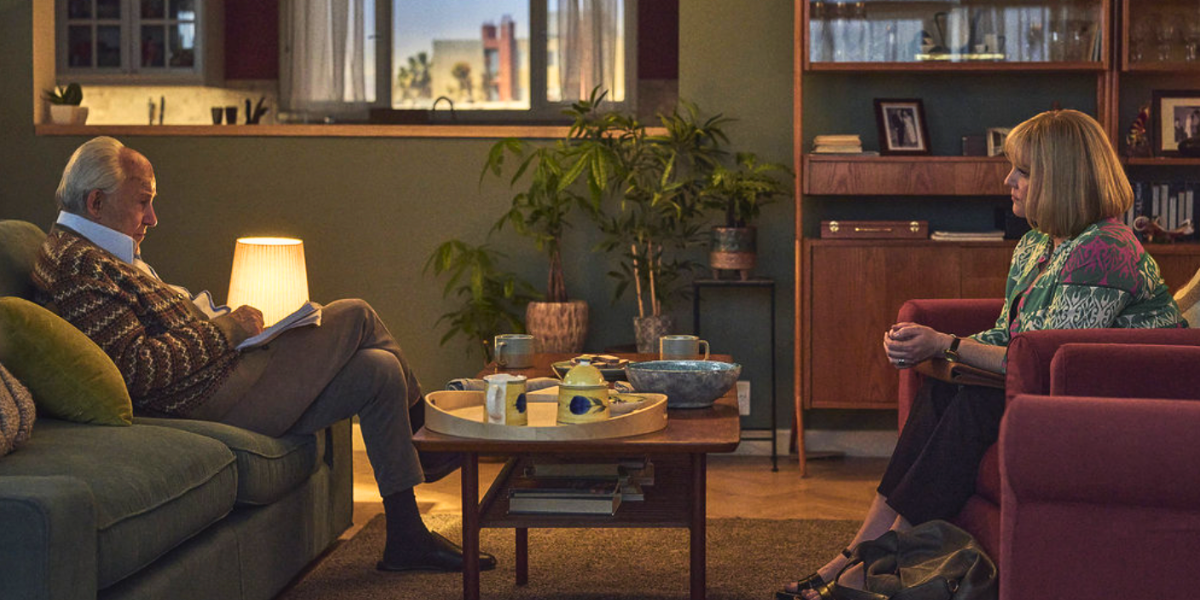Arts
‘The Tattooist of Auschwitz’ Glorifies Love. Should It?

“Of all the concentration camps in all the world, you had to get forcibly transported by cattle car into mine.” If that line sounds jarring to you, it is hardly surprising. And I admit I’m being a bit facetious, juxtaposing the famous Casablanca line with scenes from Peacock’s new Holocaust drama, The Tattooist of Auschwitz, which recounts the romance between two Jewish inmates at Auschwitz. But there is something deeply unsettling about sitting down to watch a love story unfold in one of the most infamous camps in the Nazi regime.
The Tattooist of Auschwitz is a new limited streaming series adapted from the novel of the same name, which is based on the fictionalized true account of Holocaust survivor Lale “Lali” Sokolov, as told to writer Heather Morris. Lali (played as a young man by Jonah Hauer-King) arrived at Auschwitz-Birkenau in 1942, where he became one of the camp’s tattooists. He meets Gita (Anna Próchniak) as he is tattooing the number on her arm, and it is love at first sight.
As the person tasked with tattooing numbers on his fellow inmates, Lali worked directly for the SS, and as such, he was afforded privileges most other Jewish prisoners were not. It is because of this that he meets Gita and can see her again and again in the women’s camp.
The show also features a new single by Barbra Streisand. “Because of the rise in antisemitism around the world today,” Streisand said in a statement to the press, “I wanted to sing ‘Love Will Survive’ in the context of this series as a way of remembering the six-million souls who were lost less than 80 years ago. And also to say that even in the darkest of times, the power of love can triumph and endure.” It is a haunting song, and a noble message, if not a bit on the nose for the theme of the series.
The series’ narrative shifts between an elderly Lali (Harvey Keitel) telling the story of his experiences in the camp to Morris (Melanie Lynskey), and the dramatization of events showing a younger Lali. In an effort to help with some of the inconsistencies between real-life Lali’s memory and the realities at Auschwitz, and to ensure historical and religious accuracy while allowing room for some flexibility, the show hired writer and documentary filmmaker Naomi Gryn as a historical and Jewish cultural consultant.
One of my favorite parts of the series is the way it deals with the fallibility of memory, and with the truths of how we wish we had behaved in the worst of circumstances, versus the reality of how we truly behaved: What favors did Lali have to do for the sadistic Nazi guard Stefan Baretzki (Jonas Nay) in order to see his beloved? How many prisoners’ fates did he trade for his own? Keitel expertly depicts Lali’s internal struggles with the choices he made in the camp in his portrayal of the older Lali. All the acting, in fact, is excellent.
“This is a work of fiction based on the memory of one man,” said novelist Heather Morris. “It is not the story of the Holocaust. My novel is not an academic, historical account,” she insisted.
And yet, it is a story of the Holocaust, albeit a unique one. “This is a love story,” older Lali tells Morris at the opening of the series. There are few other real-life concentration camp love stories, one can assume. The Holocaust is inherently about families being torn apart, about the depths of cruelty within man, and for some lucky ones, about survival against all odds. The Holocaust is not about romance.
There are indeed many poignant moments in The Tattooist of Auschwitz, and the attention to detail and dedication to getting the facts right is commendable. I believe that because Tattooist is based on a survivor’s account, it is important. I also believe that the writers and producers have chosen the wrong aspect of the story to highlight.

When asked what she hopes audiences will take away from watching The Tattooist of Auschwitz, director and co-executive producer Tali Shalom-Ezer replied, “To be able to see light—and love—in the darkest time in history. We are experiencing very dark times again now, so I hope the show will inspire the audience to believe in love.”
Maybe it’s just me, but when I watch a series about the Holocaust, I don’t want to leave it believing in the power of love. Don’t get me wrong, I love love. I can even appreciate a good love story within the context of the Holocaust. One can easily imagine how shared tragedy spurs the need for deep human connection. Love can exist even in the darkest times. We now know from Lali’s story that it can even blossom there. But is that not beside the point?
The Tattooist of Auschwitz premieres on May 2, 2024, with all episodes available to stream exclusively on Peacock.
Talia Liben Yarmush is the former digital editor of Hadassah Magazine. You can find more of her work at TaliaYarmush.com.










 Facebook
Facebook Instagram
Instagram Twitter
Twitter
Leave a Reply